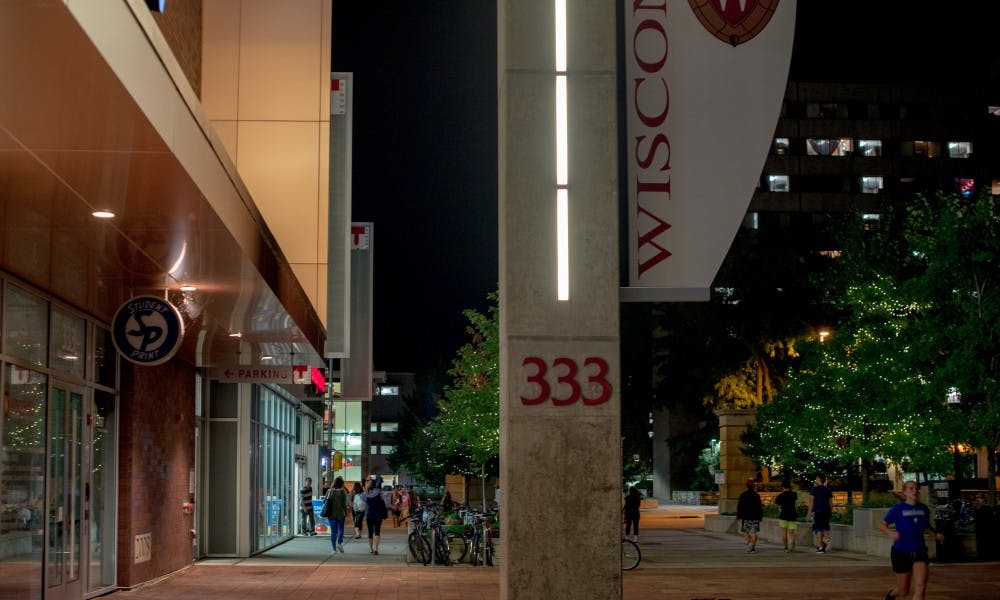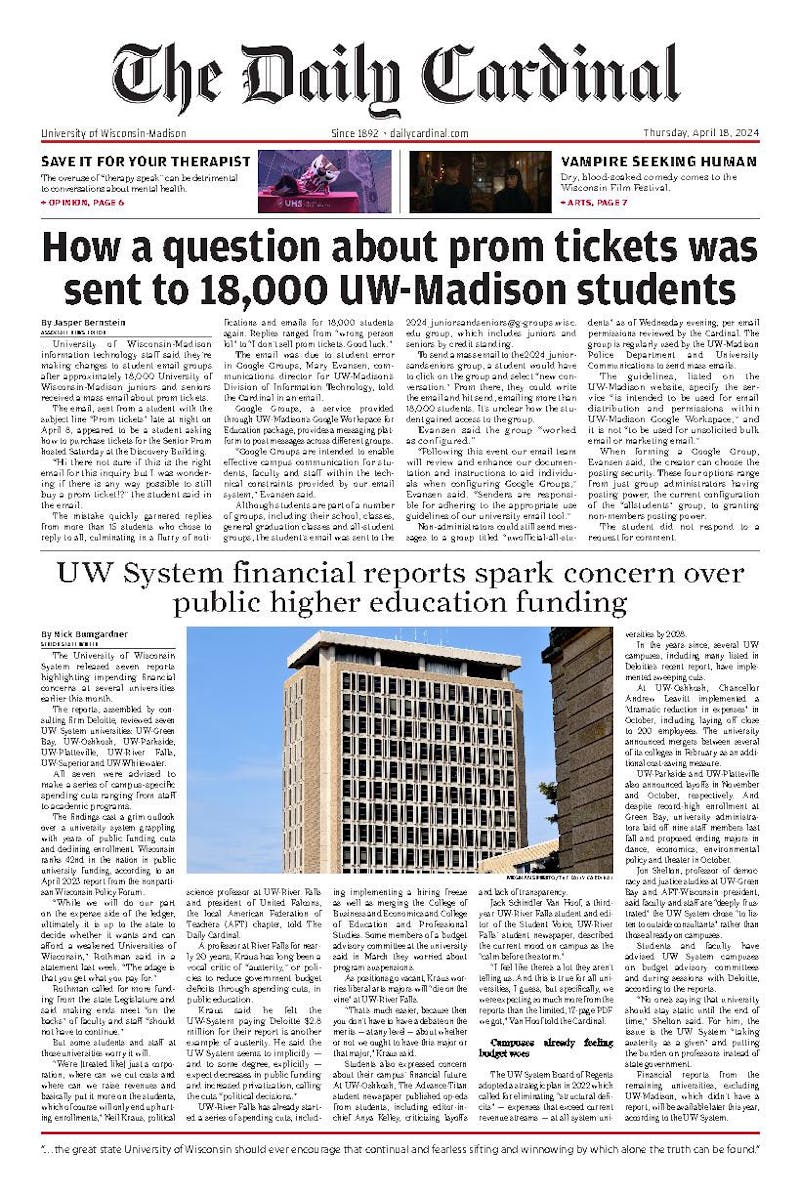Allocable segregated fees—the approximately $90 each UW-Madison student pays along with their tuition every year—go toward funding many clubs, resources and services across campus. However, according to the new budget proposal from Gov. Scott Walker, these fees will be made optional for students. While saving money may sound appealing, the loss of segregated fee income could be catastrophic for our campus community.
While all organizations that rely on segregated fees for income are important, services that offer sexual health resources are especially important for the wellbeing and safety of students. Sex Out Loud, Promoting Awareness, Victim Empowerment and the Rape Crisis Center all heavily rely on funding from segregated fees to offer services to students such as free condoms and sex education, as well as resources and support for survivors of sexual assault.
With diminishing segregated fees, our campus could lose integral sexual health resources like the ones listed above.
PAVE—a student organization that focuses on empowering survivors of sexual assault—holds regular events featuring speakers on topics such as domestic abuse, stalking and overcoming challenges linked with sexual violence. They also have an office in the Student Activity Center, which is regularly staffed by trained students ready to help survivors of sexual assault.
According to Cassidy Schroeder, student chair of PAVE, these resources could be slashed if students are given the option to opt out, possibly reducing available funding.
“If funding is cut off and all of a sudden we don’t have segregated fees, our staff would have to downsize their time,” Schroeder said. “For instance, I work 20 hours a week and that’s paid. As a working class student, I wouldn’t be able to give this much time to the job if it wasn’t paid.”
The Rape Crisis Center, an off-campus service with a campus component that offers 24-hour hotline help, as well as survivors’ advocacy and counseling services, is also heavily reliant upon funding from segregated fees. According to Jaime Sathasivam, if the funding they received was cut, they would have to downsize the scope of their 24-hour services.
“We currently always have two layers of 24-hour services—one person to answer phone calls and one person to go to for medical advocacy if needed,” Sathasivam said. “However, we may have to cut that to one layer if our funding diminished.”
Sexual health resources such as PAVE, Sex Out
If such services were to be cut or downsized because of insufficient funds, students would be losing services that could change their lives.
While PAVE and the Rape Crisis Center help offer support and resources to survivors of sexual assault, Sex Out Loud approaches sexual health resources in a more sex-positive and educational way. This perspective is also key in the prevention of sexual assault on campus, as well as a healthy view of sex among students. Sex Out Loud program facilitator Miriam Kelberg prides the organization on creating a consent culture on campus, something that we desperately need.
“Reframing the question of what and who sex is for is integral to consent culture and equality,”
Sex Out Loud focuses on a sex-positive and pleasure-inclusive approach to sex, removing stigma from the topic in a way that they hope will create a more healthy view
“We wouldn’t be able to do programs on campus, we wouldn’t be able to educate folks about [what] consent culture looks like, about condoms, about how we can check in with our partner about sexually transmitted infection testing,” Kelberg said. “None of that would be possible.”
Segregated fees are divvied up and given to student organizations by the Associated Students of Madison’s Student Services Finance Committee through a pool called the General Student Services Fund under a system of viewpoint neutrality. This ensures that regardless of an organization’s beliefs, actions or leanings, their funding will not be affected, the ASM Grant Allocations Committee wrote in a Feb. 9 letter to the editor for The Daily Cardinal.
“If the governor wants to argue that students should directly fund the events, travel and other expenses for the student organizations they do care about without having to pay for other things they don’t agree with, this doesn’t accomplish that,” the GAC said in the letter. “All this does is decrease the overall pool of funding that we have to pull from.”
Sexual assault is a very real problem here at UW-Madison. Our students are affected at a rate that is higher than the national average. If we are to strip survivors of sexual assault of their resources on our campus, then we are only exacerbating the problem.
If Walker and his administration truly want to better the student experience for thousands at UW-Madison, they will realize that the $90 we pay as segregated fees does more than just empty the pockets of students and their families.
What are your thoughts on the impact that segregated fee changes will have? If you need to contact the Rape Crisis Center, their number is (608) 251-7273. Please send all comments, questions and concerns to editorialboard@dailycardinal.com.






